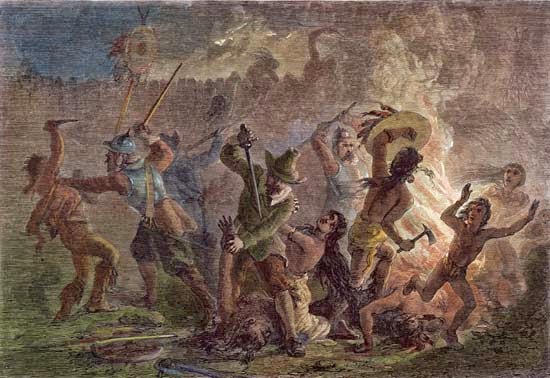-
The
Election of Donald Trump
45th President of the United States of America
Last night I came home very late from watching the
election results with friends in shock if not disbelief. The country had just
elected as President of the United States of American a sociopath openly
barbarian. True, we have had criminals for presidents before, but never one so
uncouth, so ignorant, so vocal in his hatred, so arrogant in his barbarism, his
xenophobia, his racism, his misogyny, his homophobia, his disregard for the
very Earth.
In a word, just elected as president of the United
States of America, the greatest contemporary empire in the world, is a man whom
we must not dare let ever visit the Court of St. James's or Buckingham Palace
lest he goose the queen — to the horror of the world to be sure, though most likely
to the delight of his supporters.
It is these many supporters that elected Trump that
must be most feared. In them, Trump has exposed what is most sick, most
pernicious in the U.S. psyche. What we have most to fear is the resonance
Trump's hatred, xenophobia, racism, misogyny, homophobia finds in so many of
our countrymen, countrywomen.
Going to bed at that late hour, it was this that
brought me nightmares and made uneasy my sleep. I woke early this morning and
went to a class in "Growing Justice" at the Emiliano Zapata Street
Academy, a charter school in Oakland, California, at the invitation of its
teacher Colin Miller, to conduct the Talking-Stick Ceremony and allow the
twenty young students, ages 13 to 18 years, to express what they felt.
Some were articulate in expressing their fear, their
confusion, their grief, their anger. Others were equally eloquent in their
silence, their bowed heads, their sad or scared expressions, their cowed
postures — even the inattentiveness of some was tainted with nervousness.
What could I say to comfort them when my own spirits
were dark, burdened with grief, fear, anger? I said what I could about the need
to love now more than ever, the necessity of hope, the importance of focusing
our anger to confront the menace of the fascist state with meaningful action,
of undermining our fear by cultivating our joy, of expressing our grief and
comforting each other. I told them that the Age of the Warrior must come to an
end and that we must bring in the Age of the Healer, no less courageous and
committed, fired by a fierce love.
But I must say that I found more comfort from them,
than they must have had from me, though many came to me after class to thank me
for what I had said. The beauty of their faces, of all hues and forms,
exuberant with youth in spite of it all, gladdened me and strengthened my
resolve to do what I could in the struggle for justice and peace, and the
wholeness of the Earth. For ultimately it is for them that the struggle must be
carried on with even greater determination.
I came home afterward to a great many e-mails from
friends throughout the country and throughout the world expressing sympathy,
and grief, and fear, and anger, alarm and disbelief. So many that I must
apologize for not answering each individually, Instead I offer this and would
say essentially what I said to the young students this morning.
Let us commit ourselves to the struggle for justice,
for peace, for a real democracy, a world of love, and an Earth whole and
capable of sustaining life. Let us continue the struggle together as fierce
healers joyful for life and each other and the challenge of the times painful
as they are and even more painful as they promise to be. Let us make joy
together even as we go.
Rafael Jesús González
Berkeley/Oakland, California
November 9, 2016
-
































